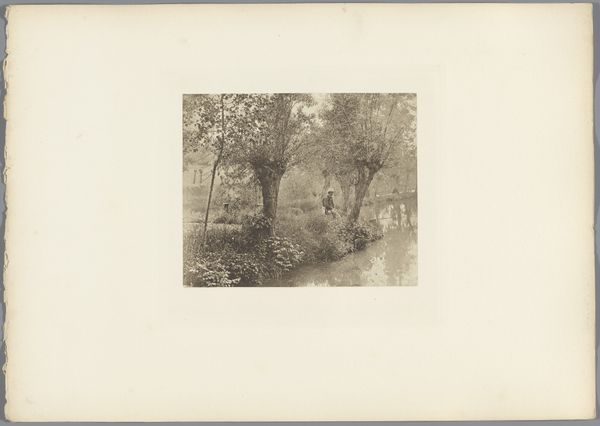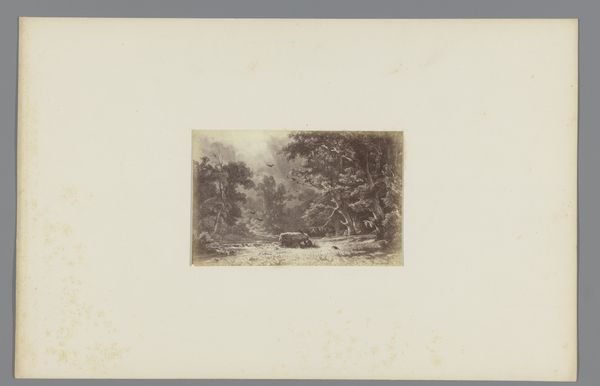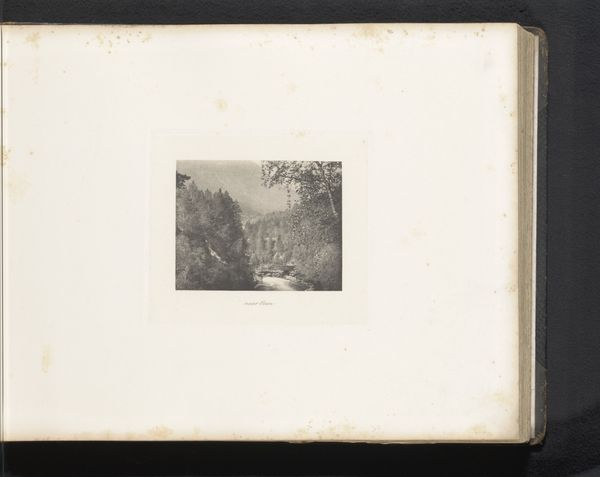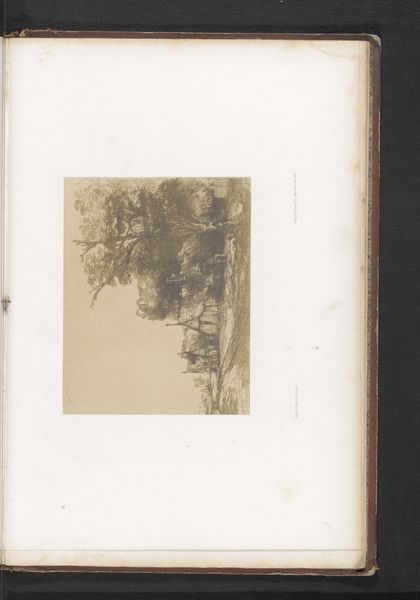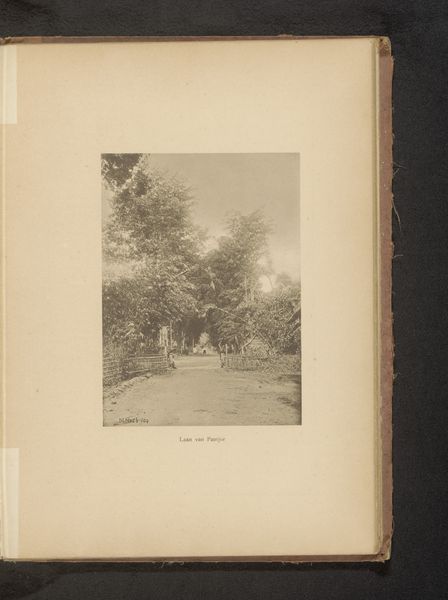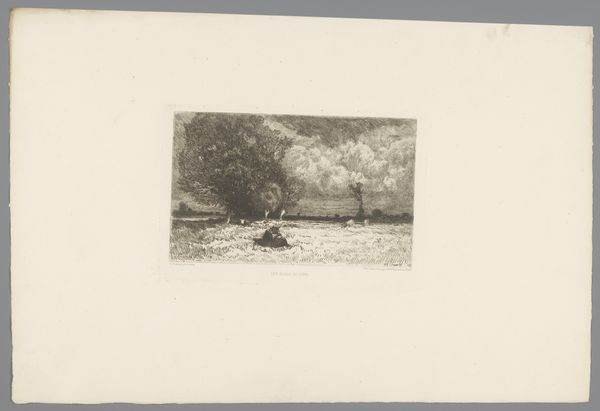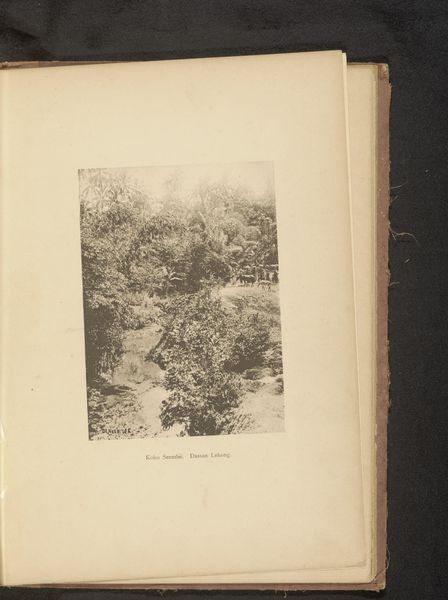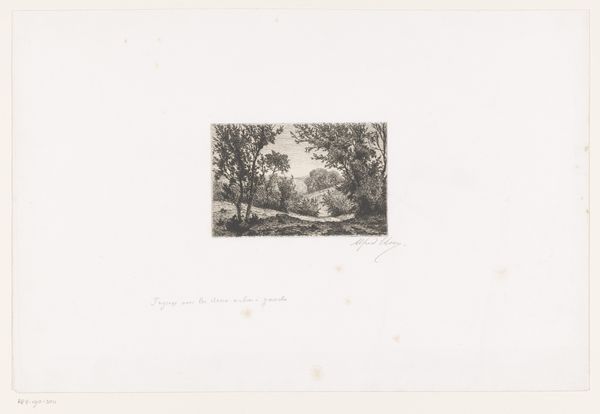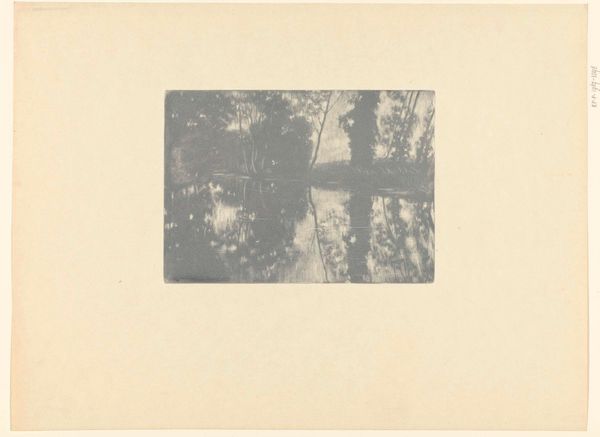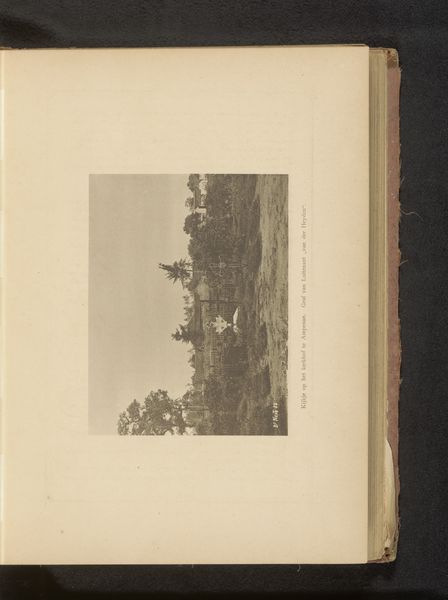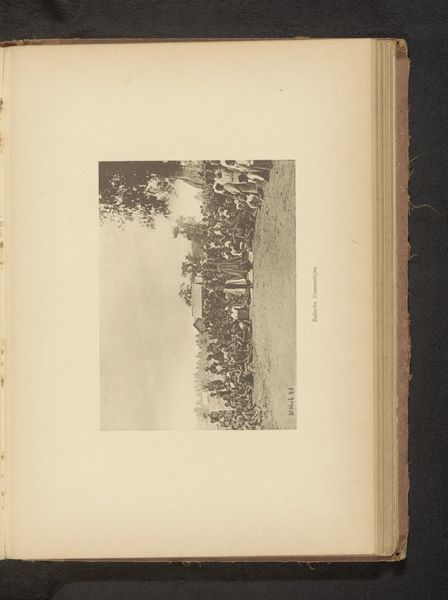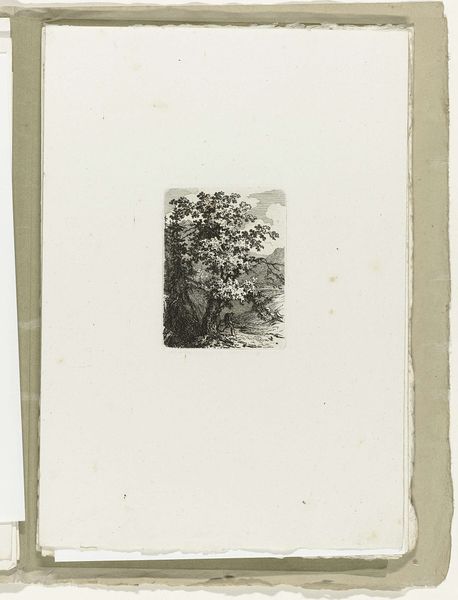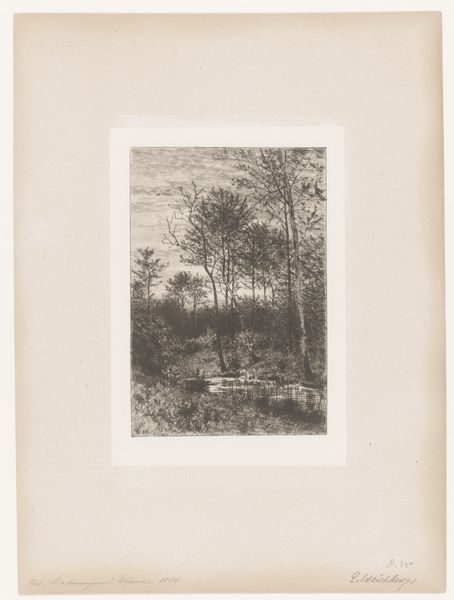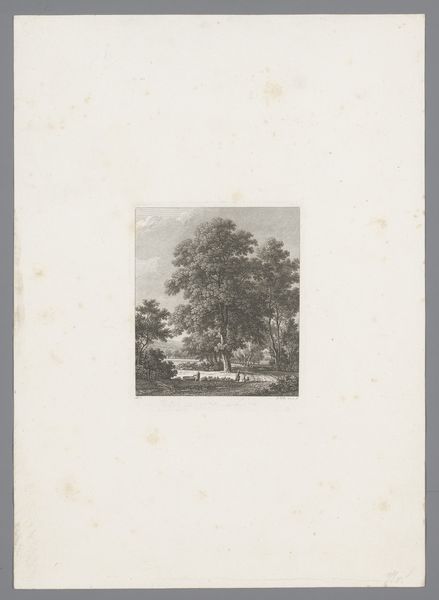
Fotoreproductie van een prent van een boslandschap met wandelaar naar Johannes Pieter van Wisselingh 1867
0:00
0:00
anonymous
Rijksmuseum
print, photography
# print
#
landscape
#
photography
#
forest
#
realism
Dimensions: height 236 mm, width 323 mm
Copyright: Rijks Museum: Open Domain
This is a photographic reproduction of a print of a forest landscape with a walker, after Johannes Pieter van Wisselingh. The original print would most likely have been made using etching or engraving, techniques that require skilled manipulation of metal plates to create an image. What’s interesting is that the making of this image involves at least two stages of production, first the creation of the original print, and subsequently its photographic reproduction, probably done using an early photomechanical process. You can see how the textures of the original printing technique have been flattened and re-presented by the later photographic process. The act of reproducing an image through photography raises questions about originality, authenticity, and value. It also speaks to the social context in which art is consumed and disseminated, as photographic reproductions democratize access to artworks, making them available to a wider audience beyond the elite circles of collectors and connoisseurs. Understanding the layers of production involved challenges traditional hierarchies between art and reproduction.
Comments
No comments
Be the first to comment and join the conversation on the ultimate creative platform.
